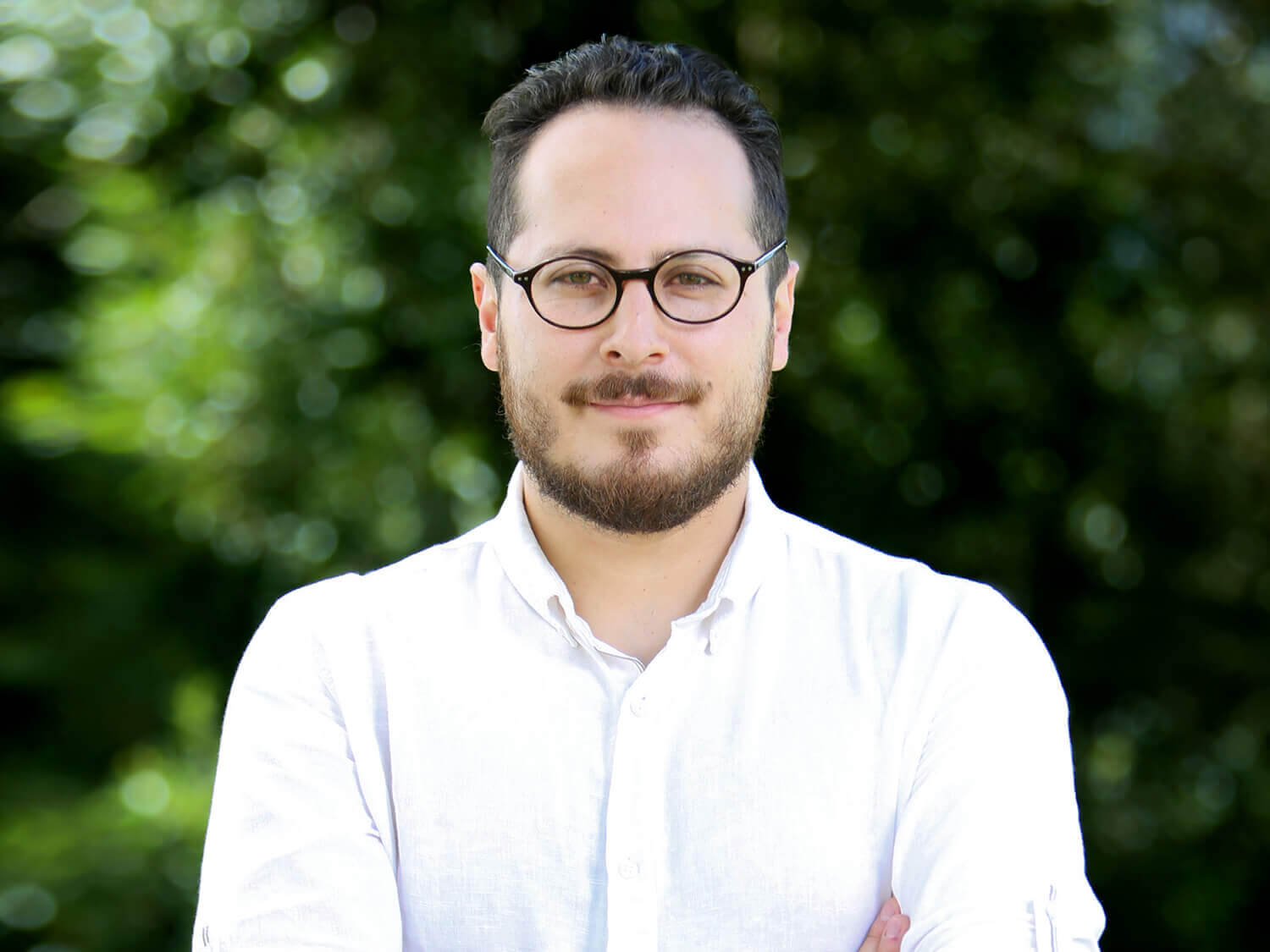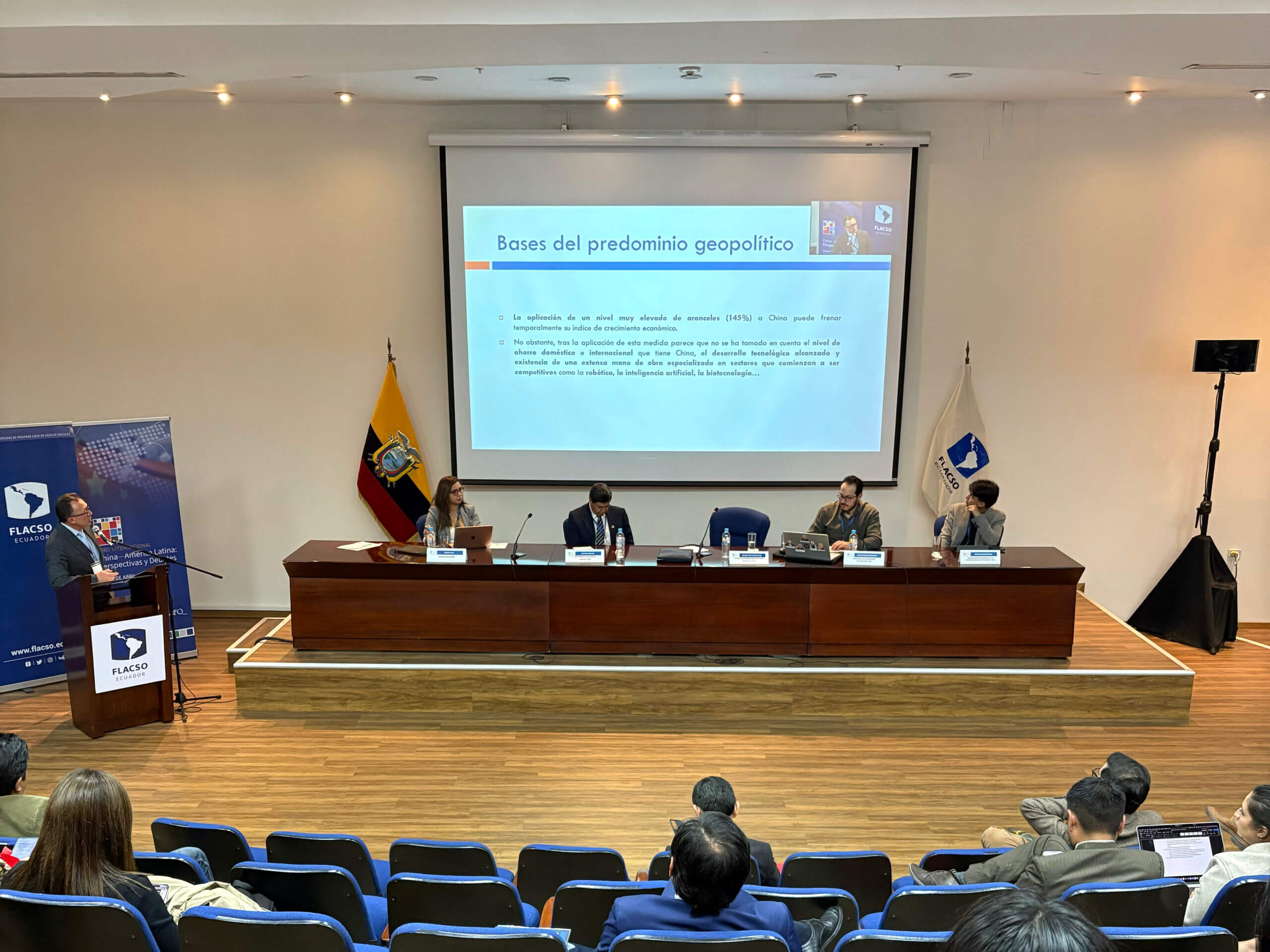Politics, History, and International Relations II
The fifth panel of the China – Latin America International Forum: Perspectives and Debates focused on the complex political and historical dimensions of China–Latin America relations, with a particular emphasis on Ecuador. Panelists examined three core themes: the history of Chinese migration to Ecuador, China’s growing geopolitical and economic influence in the region, and how China is represented in national political discourse. Their presentations highlighted the need to critically assess these dynamics through interdisciplinary and historically grounded perspectives.
Kléver Bravo, an Ecuadorian historian, presented a historical overview of Chinese migration to Ecuador since the 19th century. Starting with the arrival of the first Chinese laborers hired to work on cocoa plantations, Bravo traced how this community moved from marginalization to becoming significant actors in urban popular economies, gastronomy, and commerce. He also noted the legal and social challenges Chinese migrants have faced over time, emphasizing their resilience and contributions to Ecuador’s national identity.
Sebastián Mantilla, a political analyst, discussed China’s global rise and expanding presence in Latin America. He argued that China’s post-1978 economic reforms enabled its transformation into a global power, with Latin America emerging as a key partner. During the COVID-19 pandemic, this influence deepened through trade, infrastructure financing, and strategic investments. Mantilla stressed the dual nature of this engagement: while it brings economic opportunities, it also creates structural dependencies and raises questions about sovereignty. He called for more deliberate regional strategies in response to China’s rise.
Santiago Carranco examined post-pandemic trade dynamics between China and Latin America, focusing on mining and agriculture. He observed that while many economies contracted, China maintained growth, reinforcing its role as a vital trade partner. Carranco emphasized that bilateral agreements, such as free trade deals and infrastructure investments, should be assessed through the lens of sustainable development, taking into account social, environmental, and governance impacts.
Demian Escudero analyzed how China was represented in Ecuador’s political discourse during the 2023 early elections. Based on a dataset of over one hundred public statements, he found that China was rarely mentioned, and when it was, the references were superficial and focused mainly on financial issues. Escudero argued that this limited discourse fails to reflect China’s growing importance to Ecuador and proposed a more informed and strategic approach to incorporating China into national political debates.
Panelists:

Demian Escudero. Pontifical Catholic University of Ecuador – Socio-environmental Observatory on Chinese Investment in Latin America
Country: Ecuador
Presentation: Perceptions of Ecuador’s Presidential Candidates on Relations with China during the 2023 Early Elections

Sebastián Mantilla. Latin American Center for Political Studies (CELAEP)
Country: Ecuador
Presentation: China’s Strategic Influence in Latin America

Santiago Carranco. International University of Ecuador
Country: Ecuador
Presentation: Shifting Relations between Small Andean Countries (Ecuador and Peru) and Major Powers (China) in the Wake of the COVID-19 Pandemic

Kléver Bravo. University of the Armed Forces (ESPE)
Country: Ecuador
Presentation: Historical Analysis of Ecuador–China International Relations: 45 Years in the Bilateral Arena

